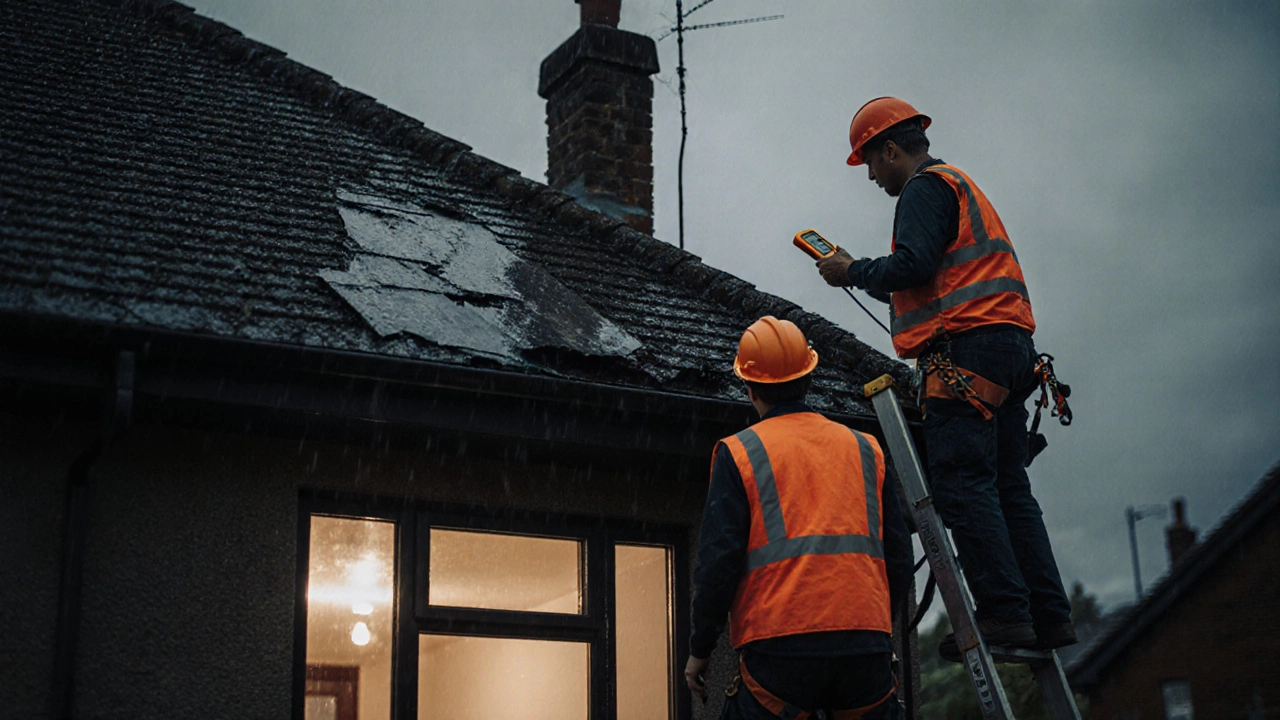Why You Should Call a Roofer: 7 Compelling Reasons
Discover why calling a professional roofer saves money, ensures safety, and simplifies insurance. Learn inspection signs, warranty benefits, and how to pick the right expert.
When you think of a roofer, a skilled tradesperson who installs, repairs, and maintains building roofs. Also known as roofing contractor, it's not just about laying shingles—it’s about protecting your home from weather, heat, and structural damage over decades. A good roofer doesn’t just climb ladders and hammer nails. They read blueprints, understand ventilation needs, spot hidden rot, and choose materials that match your climate and budget. In places with heavy snow or monsoon rains, their work isn’t optional—it’s your home’s first line of defense.
Roofers work with a range of materials, each suited for different jobs. asphalt shingles, the most common roofing material in North America and parts of India, known for affordability and ease of installation make up the majority of residential roofs. But you’ll also find metal roofing, a durable, long-lasting option that resists fire, wind, and pests, especially in areas prone to storms. Then there’s tile, slate, and even rubber membranes for flat roofs. A roofer knows which material lasts 20 years versus 50, which needs special underlayment, and which can handle the weight of snow without sagging. They don’t guess—they calculate load limits, slope angles, and drainage paths.
It’s not just about the roof itself. A roofer also checks flashing around chimneys, vents, and skylights—small details that cause big leaks if done wrong. They inspect attic ventilation to prevent mold and ice dams. And they know when to call in a structural engineer if the rafters are warped or the trusses are compromised. Many homeowners try to fix a leaky roof themselves, but without the right tools and training, they end up making it worse. A single mistake in sealing or nailing can lead to water damage inside walls, ruined insulation, or even ceiling collapse.
What you pay upfront for a roofer often saves you thousands later. Poor installation leads to early replacement, higher energy bills from poor insulation, and insurance claim denials if damage is deemed preventable. That’s why the best roofers don’t just work fast—they work right. They carry liability insurance, provide written warranties, and show you exactly what they’re doing before they start. And in places like India, where extreme heat and monsoon rains test every building, a well-installed roof isn’t a luxury—it’s survival.
Below, you’ll find real insights from people who’ve dealt with roof repairs, replacements, and the hidden costs of cutting corners. Whether you’re wondering if you can fix a leak yourself, how to pick the right materials, or why your new roof already sounds like a drum in the rain—these posts break it down without the fluff.

15 October
Discover why calling a professional roofer saves money, ensures safety, and simplifies insurance. Learn inspection signs, warranty benefits, and how to pick the right expert.